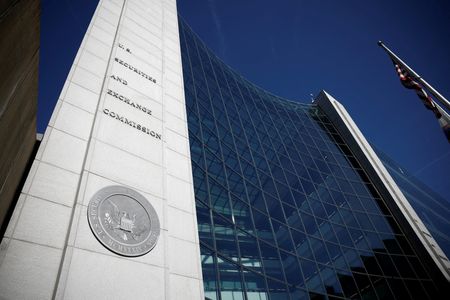By Yoruk Bahceli
LONDON (Reuters) – The gap between euro zone governments’ credit ratings is at its narrowest since 2010, Citi data shows, with a French downgrade and upgrades for Spain and Portugal underscoring increasing convergence among member states’ economic fortunes.
Fitch downgraded France to ‘A+’ last Friday after a government collapse complicated its already challenged deficit reduction effort. The same day, S&P Global upgraded Spain to the same score, citing its economic strength, and Fitch upgraded Portugal to ‘A’ on the strength of its debt reduction.
Fitch had downgraded Finland, Austria and Belgium over the summer because of high deficits and debt, accelerating a steady convergence over the last decade – driven mainly by poorer countries recovering from the 2010-11 debt crisis and their economic prospects improving after the 2020 COVID crisis.
The ratings moves illustrate the debt trajectory within the euro zone, said Carmignac fund manager Aymeric Guedy.
Southern countries are catching northern peers not only by narrowing their debt but also with better growth, Guedy said. Higher growth helps keep debt levels in check.
Following the bloc’s debt crisis, several governments lost their AAA ratings, leaving only Germany and the Netherlands with a top score among major euro zone economies. Portugal and Greece were for a time downgraded to “junk” scores, which constrained who could buy their debt.
Fitch was set to review Italy’s rating later on Friday.
Analysts said an upgrade to BBB+ was likely following a similar move from S&P in April, which would raise Italy further away from the cusp of “junk” and narrow the gap further.
On Thursday, French and Italian 10-year bond yields traded at the same level for the first time.
Rating agencies move more slowly than markets, so government borrowing costs reflected convergence between the north and south well before ratings. Indeed, bond market reaction to Fitch’s France downgrade was restrained.
But ratings still matter as changes can trigger buying and selling by investors with rating restrictions. Long-term investors like central banks and pension funds also favour investments with higher ratings.
“The official changes will matter and can drive further reallocations, particularly for institutional investors,” said Ross Hutchison, head of euro zone market strategy at Zurich Insurance Group.
Aman Bansal, senior European rates strategist at Citi, said the rating convergence could encourage some international investors to shift some holdings of French bonds towards Spain and possibly Italy.
Foreign investors own 55% of France’s debt, a higher share than in other euro zone countries, making it more vulnerable to shifts in confidence.
(Reporting by Yoruk Bahceli; editing by Dhara Ranasinghe and Kevin Liffey)









